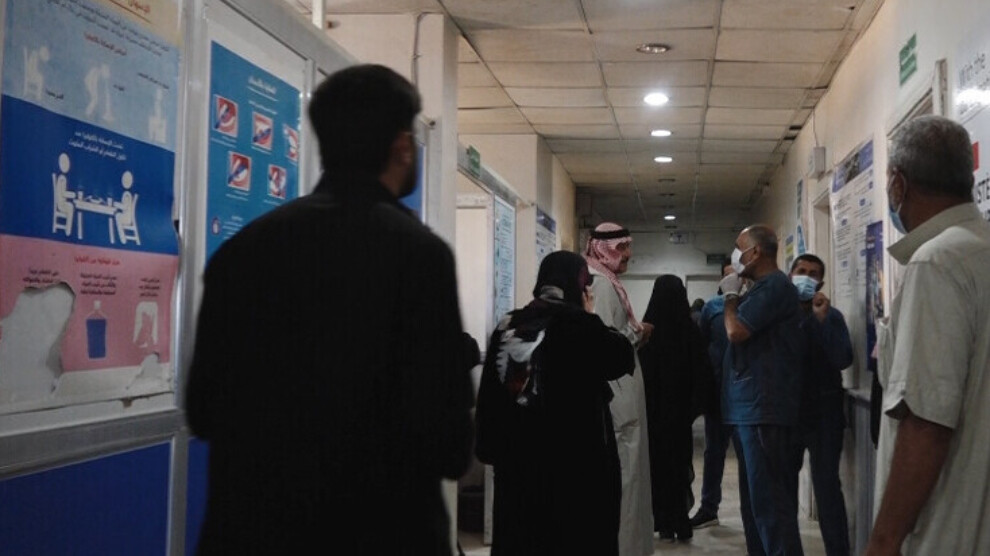Autonomous Administration's Health Board holds press conference about outbreak of cholera
The Autonomous Administration of Northern and Eastern Syria's Health Board held a press conference in Qamishlo about the outbreak of cholera.
The Autonomous Administration of Northern and Eastern Syria's Health Board held a press conference in Qamishlo about the outbreak of cholera.

Jiwan Mustafa, the Health Board co-chair, stated that there were 2,867 suspected cases, 78 confirmed cases, and 16 deaths across NES to date, mostly in Deir ez-Zor.
Mustafa confirmed the presence of 'Vibrio cholerae', the bacteria which causes the cholera illness, in the Euphrates River. He stated that if the situation turns into a pandemic, the Health Board does not have the ability to manage alone.
A key reason for the spread of the disease is that many people drink untreated water directly from the Euphrates, into which raw sewage is dumped, as well as use this water for agriculture, because there are no other options available, with insufficient water filtering stations.
A recent REACH report stated that 69% of communities in NES lack sufficient access to water, whilst 38% experience issues with the quality/safety of their drinking water.
Furthermore, it is reported that prior to the cholera outbreak, Deir ez-Zor local authorities had stopped distributing chlorine to water pumping stations, but AANES claim they have now resumed distribution.
This situation is compounded in IDP camps. If water is delivered in trucks from tankers, it is expensive, and even then, it often comes directly from the Euphrates without filtering or sterilization.
Reportedly, the 270 IDP families living in al-Younani camp (Raqqa) were recently forced to drink visibly dirty river water after the main water station in Raqqa paused operations for maintenance works for 2 days, and when supply resumed to the city, pumping of water was irregular.
In Aleppo, the Syrian government's Directorate of Agriculture ordered 165 acres of cultivated crop land to be destroyed, after samples taken from irrigation water showed the presence of cholera, to prevent the disease spreading. So far, AANES has not announced such measures.